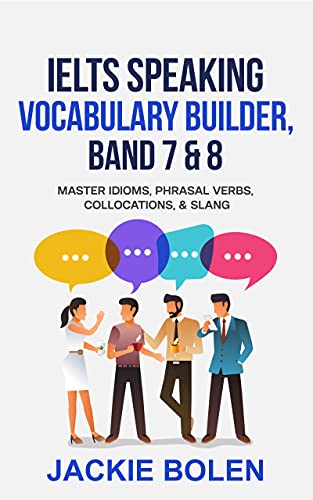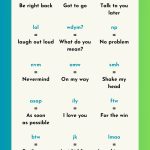If you’re looking for some IELTS speaking tips, then you’re certainly in the right place. We’re going to give you the details you need to know about this English proficiency exam, including the IELTS speaking rubric, along with the best tips for improving your score. Be sure to check this out as well: IELTS Speaking Part 2 Questions or IELTS Part 3 Questions.

IELTS Speaking Tip
How to Improve your IELTS Speaking Test Score
As the IELTS exam has become increasingly important internationally, there’s more and more information available on the Internet about the exam. It’s important to consider this information critically and to consider the source of information. Many people have their own opinions about how to perform well; some of these opinions come from direct experience, while some, unfortunately, amount to educated guesses that might not be informed.
Continue reading to get the speaking tips for IELTS, and be sure to take a look at our IELTS Speaking Grading Information.
- Amazon Kindle Edition
- Bolen, Jackie (Author)
- English (Publication Language)
- 287 Pages - 04/06/2023 (Publication Date)
Top IELTS Speaking Tips and Tricks
There are five things you should know specifically about the IELTS Speaking exam. Some may seem obvious; some might apply to other exams. Of course, you should arrive on time, well before your scheduled speaking test time, and pay close attention to your appearance. Being on time for all of the tests is vital, but your appearance isn’t as important in the other exams.
In the speaking test, you’ll be sitting one on one with the examiner. Your appearance isn’t an exam criterion and shouldn’t matter, but examiners are human and may occasionally be swayed subconsciously by your appearance. Being well-groomed makes you look confident and serious, and this can only help you.
The five things that apply directly to the IELTS speaking exam are as follows. Read closely for the top tips you need to know to ace this exam!
Need some tips for the reading portion? Have a look here: IELTS reading tips.
Tip #1: Relax and Slow Down
First, if you feel nervous and start to rush as you talk, stop, relax and slow down. You should talk at a natural, comfortable pace, which is one of the exam criteria; if you talk too fast, you’re more likely to make mistakes. It’ll be more difficult for the examiner to follow what you’re saying and grade you accurately.
The most important aspect of the exam is how well you communicate your ideas; talking at a natural pace is central to this point.
- Amazon Kindle Edition
- Bolen, Jackie (Author)
- English (Publication Language)
- 175 Pages - 07/05/2021 (Publication Date)
Tip #2: Can you Repeat that Please?
Second, if you don’t understand a question or didn’t hear it clearly, ask the examiner to repeat the question. For example, you can say, “I’m sorry, could you repeat that, please?” The examiner will repeat what they said; if you still don’t understand, they will (or should) rephrase the question or statement.
Some IELTS teachers and websites say you should ask for an explanation, but examiners won’t explain. The reason is that they aren’t allowed to explain; the officials who create the test materials presume that you should be able to understand what is being said. In fact, this is one of the criteria you’re being tested for.
You know that the exam is being recorded; the recordings are monitored afterward. An examiner who is caught breaking the rules, such as explaining something to a candidate, can be fired permanently. This will generally never happen on an IELTS speaking test!
Related: TOEIC Speaking Mini-Tests
Tip #3: Stay on Topic
Third, stay on topic at all times during your IELTS speaking test. I’ve read some complaints on Internet blogs saying that topic shouldn’t matter; candidates complain that their speaking ability is being tested, not the topic. I’m sorry to say that this isn’t true.
Candidates aren’t being tested just for their speaking ability, they’re being tested for their ability to communicate. This means that they have to be able to relay information that is relevant to the topic. If you asked someone, “how are you today?” and they answered “I’m pleased to meet you, too,” you’d be quite confused. The answer is completely irrelevant to the question; there has to be a logical connection between the question and the answer.
This is similar to the writing part of the exam, where you should stay on topic and answer the questions fully. Learn more: IELTS writing tips and tricks.

Speaking Tips for IELTS
Tip #4: Don’t Correct Mistakes
The fourth IELTS speaking tip is that if you make a mistake, keep talking; don’t try to correct the mistake. This point is controversial, and other examiners might disagree. Some will suggest that you should correct the mistake. There is no right or wrong answer here; what matters is how your actions are perceived.
Let’s look at a potential situation: you’re talking about your grandfather, and without realizing it, you refer to him as “she.” This is a common, very normal mistake people make when learning English. Stopping to correct yourself and say “he” would be smart, as you’ve shown that you’re aware of the mistake and what the correct word is. You’ve demonstrated that you have the correct knowledge, even if you occasionally slip.
What about Complicated Mistakes?
But what if you make a more complicated mistake on your IELTS speaking test? In another potential situation, you’re talking and use the incorrect word: you say something like “I was told from the man…” instead of “I was told by the man…”. If you stop and correct it and move on, continuing to speak smoothly, no harm has been done.
If, however, you stop to correct the mistake and then struggle to continue, this will harm your score. In a mistake like this, the listener (examiner) knows what you meant to say and the word you should have used, so it doesn’t interfere with the listener’s comprehension. It’s a small mistake and won’t affect your score unless you start to repeat the mistake with different words.
If you begin to struggle, if you are starting and stopping, saying sentence fragments, and repeating yourself, this will affect your score for coherence. It makes it more difficult for the listener to understand you. There is no right or wrong answer, but I would strongly suggest not correcting the mistake and moving on.
Related:
ESL Speaking Rubric for Teachers
Tip #5: Avoid Memorized Answers
The fifth speaking tip for IELTS is to avoid memorized responses like the plague. Seriously. Especially in Part 3. I read one website while I was researching and writing this article that suggested examiners are predictable in their questions. It said it’s ok to have some fallback phrases. This is one of those rare moments when I become a little angry because this is bad advice.
IELTS Speaking Test: Parts 1, 2 & 3
Check out some information about the various parts of the IELTS speaking exam.
IELTS Speaking Part 1
It’s true in part 1 of the IELTS speaking exam that examiners have to choose between a selection of pre-written questions and aren’t allowed to alter them in any way; the questions must be asked exactly as they are written. If you use a memorized sentence, it might not be noticeable at first; but you should try to expand each answer.
You don’t want to reply each time with a single-sentence answer because it’ll look like you don’t have much to say. You don’t want to talk at length in Part 1. Two to three sentences per question are perfect, but one sentence every time will hurt your score.
How to Improve IELTS Speaking Band Score
IELTS Speaking Part 2
In Part 2 of the IELTS speaking test, you’ll do all the talking, and the examiner won’t talk at all. If you think you can memorize two-minute speeches on every topic you might be asked, go for it. However, I’d be surprised if someone could do this. And if the answer you give and expand on is off-topic, your entire Part 2 answer won’t be acknowledged. That’s right. You’d lose everything you said in Part 2 as if you hadn’t said anything. You can see where I’m going with this, yes?
- Amazon Kindle Edition
- Bolen, Jackie (Author)
- English (Publication Language)
- 175 Pages - 07/05/2021 (Publication Date)
IELTS Speaking Part 3
And in Part 3 of the IELTS speaking test, the examiner will ask a question related to the Part 2 topic and then create more questions spontaneously. There’s absolutely no way to know what questions the examiner will ask, and memorized answers would almost certainly be unrelated to the questions being asked.
The examiner in this part is testing your ability to communicate naturally at higher levels of English on much more complicated topics. They’ll raise and lower the complexity of the questions as they determine what you’re able and unable to do. Your answers must match the grammar of the questions for verb tense, sentence structure, and so on. Trust me; it is almost impossible to do this with memorized phrases.
Learn About IELTS Speaking Grading
More IELTS Speaking Tips
If you’re looking for even more speaking tips for IELTS, then here are some more good ones to consider:
- Speaking fluently is more important than using complicated grammar or vocabulary.
- Practice lots!
- Don’t be shy about asking the examiner to repeat the question. There is no penalty for this.
- Use emotion and feeling in your answers.
- Avoid very short answers. Always give 1-2 more details or an example to support what you said.
- Coherence is key so use lots of linking words to join your thoughts together.
- Don’t panic if you make a mistake.
- Consider getting a private tutor or joining an IETLS speaking test preparation class.
- Avoid memorizing answers. This is similar to all aspects of the IELTS. Memorizing things won’t help you get a better IELTS listening band score, for example.
- Smile and give a good first impression.
- IDP vs. British Council: It doesn’t matter where you take it! Choose a test location and time that is convenient for you.

IELTS Speaking Tips and Tricks
Basic Information about the IETLS Speaking Test
It’s always good to know what to expect on test day, right? Here are some basic facts about this test that you’ll want to know:
- It’s face to face with the examiner in the same room.
- Everyone takes the same speaking test (general English or academic)
- It’s recorded.
- Between 11 and 14 minutes, the length of time is controlled by the examiner.
- There are 3 parts.
- It’s informal, and you’ll mostly be talking about your life experiences and opinions on common topics.
IELTS Speaking Rubric
Here is how your exam will be scored. Each part is worth 25% of the final score:
- Fluency and cohesion
- Vocabulary
- Grammar
- Pronunciation
IELTS Speaking Band Descriptor
Want to know more details about the IETLS speaking rubric? A huge IELTS Speaking tip is to go over the band descriptor, which is the marking criteria sheet used by examiners.
Download the band descriptor PDF file from the IELTS official website.
Do IELTS Questions Repeat?
A common question that people have is whether or not IELTS questions repeat from year to year. There are some common topics that you can see on a lot of the exams, such as the following:
- work/job
- where you study
- where you live
- hometown
- birthdays/holidays/celebrations
- Internet/apps/websites/smartphones
However, the questions on the IELTS don’t repeat in the sense that they are changed every few months. In addition, the examiners have around 10 possible topics on each exam to choose from. This means that you will very rarely see repeat questions.
How to Get IELTS Band 8: IELTS Speaking Tips
In order to get a band 8 score in IELTS Speaking, you need to get at least 89% of the marks. Normally, someone who gets a band 8 score does well in school or at work in an English-speaking country. IELTS also considers you a ‘very good’ English speaker if you get band 8. So, the score requires fluency and adequate knowledge of the English language.
If you are aiming for a higher band score like 8, try these IELTS speaking tips:
- relax
- extend your answers and give details (avoid getting why? from the examiner)
- do not memorize (you want to sound natural)
- speak clearly at a natural speed
- practice with an English speak
- record your answer and evaluate it yourself
- get familiar with the common topics
Do you have any IELTS speaking tips and tricks to add? Leave a comment and let us know.
If you want to get one of the IELTS highest band scores, you’ll need to know use things like idioms, phrasal verbs, and collocations. Here is a resource to check out:
- Amazon Kindle Edition
- Bolen, Jackie (Author)
- English (Publication Language)
- 81 Pages - 07/15/2021 (Publication Date)
IELTS Speaking Practice Exams
If you’re looking for some practice opportunities for IELTS speaking, here are some of the best practice exams online: IELTS Essentials British Council IELTS Exam
FAQs About Speaking Tips for IELTS
There are a number of common questions that people ask about taking this popular English proficiency exam. Here are the answers to some of the most popular ones.
How can I get a 9 in IELTS speaking?
To get a 9 in IELTS speaking, check out the following tips:
- Don’t be shy, and enjoy the chat with the tester.
- Ideas are important too.
- Make sure you have a good working knowledge of grammar and vocabulary.
- Understand the format of the test.
- Practice sample questions with a partner or teacher.
- Speak with confidence.
Do IELTS speaking questions repeat?
If you ask an examiner to repeat a question in an IELTS speaking test, they will do so once. If you ask them a second time, they won’t repeat it but will instead move on to other portions of the interview.
Is IELTS speaking difficult?
Among the IELTS exams, no one part, including speaking, is considered to be more difficult than the others. However, you may have specific strengths and weaknesses which make it appear that way. Spend time working on your weakest section to get the best possible score.
How long is IELTS speaking?
The IELTS speaking test is 11-14 minutes long. The length of time depends on your answers and follow-up questions and will consist of a few different topics.
What are the common topics in the IELTS speaking test?
Some common topics in the IELTS speaking test are people, places, experiences, feelings, habits, preferences, and things. Of course, other topics are also possible, so don’t limit your studying to only these ones.
Is 6.5 a good score in IELTS Speaking?
Many schools in English-speaking countries will accept students who have at least a 6.5 band score. So, it indicates that if you have a 6.5 band score, you have the basic skills to stay in an English classroom-based environment. However, you might encounter some minor misunderstandings. That saying, there is definitely room for improvement!
Have your say about these IELTS Speaking Tip
Do you have any go-to tips that you’d like to share about the IELTS speaking test or Listening Tips for IELTS? Leave a comment below and let us know what you think. We’d love to hear from you.
Last update on 2024-04-25 / Affiliate links / Images from Amazon Product Advertising API









Leave a Reply